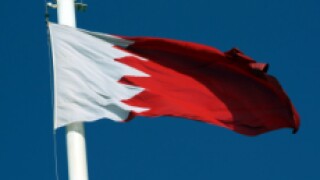GCC
-
Dubai’s Global Education Management Systems (GEMS) Education has mandated four banks to coordinate its $1.2bn loan.
-
Abu Dhabi Crude Oil Pipeline (Adcop), a wholly owned subsidiary and strategic asset of Abu Dhabi National Oil Co. (Adnoc), has named four of the arrangers of its loan to lead bond investor meetings, and those who joined the syndication will be added later.
-
The $1bn 10 year note issued by Bahrain’s Oil and Gas Holding Company (Noga) had already traded up by two cash points in the secondary market on Thursday, after landing at the top end of where deal watchers saw fair value.
-
Arab Petroleum Investments Corporation (Apicorp) is embarking on investor meetings for a benchmark five year sukuk.
-
Bahrain’s Oil and Gas Holding Company (Noga) had taken books of $2.6bn for its debut 10 year bond on Wednesday, while bankers debated the significance of the spread over the Bahraini sovereign.
-
Development finance institutions the European Bank for Reconstruction and Development (EBRD) and International Finance Corp have lent €215m to Vetroelektrane Balkana (WEBG) to develop Čibuk 1, the largest wind farm in Serbia and the western Balkans.
-
Investors are expecting a jumbo trade from the Qatari sovereign in the coming weeks, with money already shifting out of the borrower’s curve in preparation.
-
Oman Electricity Holding Co (EHC) has launched its second loan this year as part of its plan to raise $2bn across six of its subsidiaries.
-
The National Bank of Ras Al Khaimah Rakbank has closed its debut syndicated loan for $350m with 22 banks.
-
Emerging market loan bankers are used to a little political drama but the recent spat between the Saudi-led group of six Arab states and Qatar has caused doubts about whether to engage in deals with Qatari exposure. This stance is understandable for pure Qatari credits but the penumbra of uncertainty has now spread to entities at one remove from Qatar. Banks should not be put off lending.
-
Bahrain’s Oil and Gas Holding Company (Noga) is set to hit the road to market a debut 144A/Reg S dollar denominated benchmark trade with a tenor of up to 10 years, less than two years after the company made its debut in the syndicated loan market.









